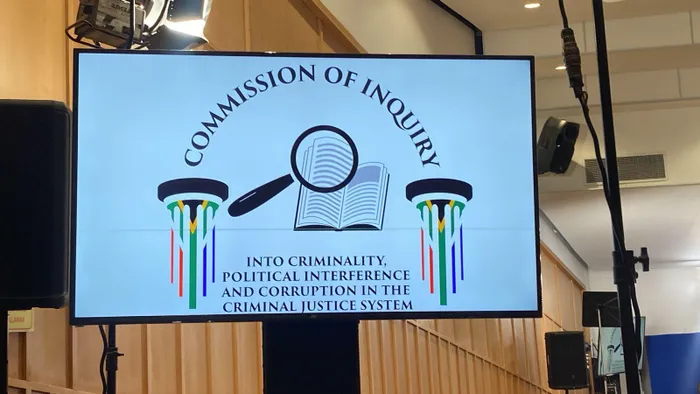
Experts Warn: South Africa's Police Service Still in Grip of State Capture
Image: Kamogelo Moichela/IOL News
The recent revelations about the capture of South Africa’s police service serve as a chilling reminder that the rot exposed during the Gupta-led state capture era remains deeply entrenched within the nation’s justice system, analysts warn.
KwaZulu-Natal Lieutenant General Nhlanhla Mkhwanazi’s explosive testimony, revealing how a criminal syndicate allegedly controlled senior police officials and politicians, has reignited public concern over the extent of institutional corruption.
The ongoing Madlanga Commission and parliamentary ad hoc committee investigations aim to unravel this web of influence.
Professor Witness Maluleke, Head of Criminology and Criminal Justice at the University of Limpopo, links the latest police capture allegations directly to the legacy of the Gupta state capture scandal.
“There is a clear continuity between what General Mkhwanazi refers to as the ‘Big Five’ - the group accused of capturing the police, judiciary, National Prosecuting Authority (NPA), and politicians - and the efforts previously uncovered during the Zondo Commission’s investigation into Gupta-linked state capture,” Maluleke explained.
“This is a story about power dynamics, corruption, and illicit money laundering. Those who were meant to uphold the law instead became puppets to organised crime and political interference,” he added.
“The police capture is a stark reminder that the Guptas’ influence did not end with their decline but instead evolved and persists in various forms.”
Maluleke further warned that this systemic corruption has severe repercussions for ordinary South Africans.
“When the foundational institutions like the SAPS and judiciary are compromised, law-abiding citizens suffer. Their safety and security are jeopardized, and public trust erodes.”
Political analyst Dr Zakhele Ndlovu from the University of KwaZulu-Natal echoed Maluleke’s concerns.
He pointed to historical precedents of police compromise, recalling the infamous case of former National Police Commissioner Jackie Selebi, who openly admitted his ties to infamous drug lord Glen Agliotti.
“Selebi’s admission was a flagrant indicator of the deep-rooted capture within law enforcement,” Ndlovu said.
“The Zondo Commission exposed how public officials were compromised on an unprecedented scale during the Gupta era. Now, the Madlanga Commission is showing us that the capture runs even deeper.”
“The police capture saga is shaking the nation’s consciousness, reminding us that the Guptas’ shadow still looms over our public institutions,” Ndlovu asserted.
“Many South Africans are coming to realize that we live in what increasingly resembles a ‘mafia state,’ where powerful networks manipulate the instruments of justice for their own gain.”
Both experts agree that the current investigations must lead to accountability.
“Holding those implicated to account, without fear or favour, is crucial - not only to punish wrongdoing but also to deter others from exploiting positions of power," said Maluleke.
Ndlovu argued that the revelations of police capture serve as both a warning and a call to action for the country to break free from the cycle of corruption once and for all.
thabo.makwakwa@inl.co.za
IOL Politics
Related Topics: